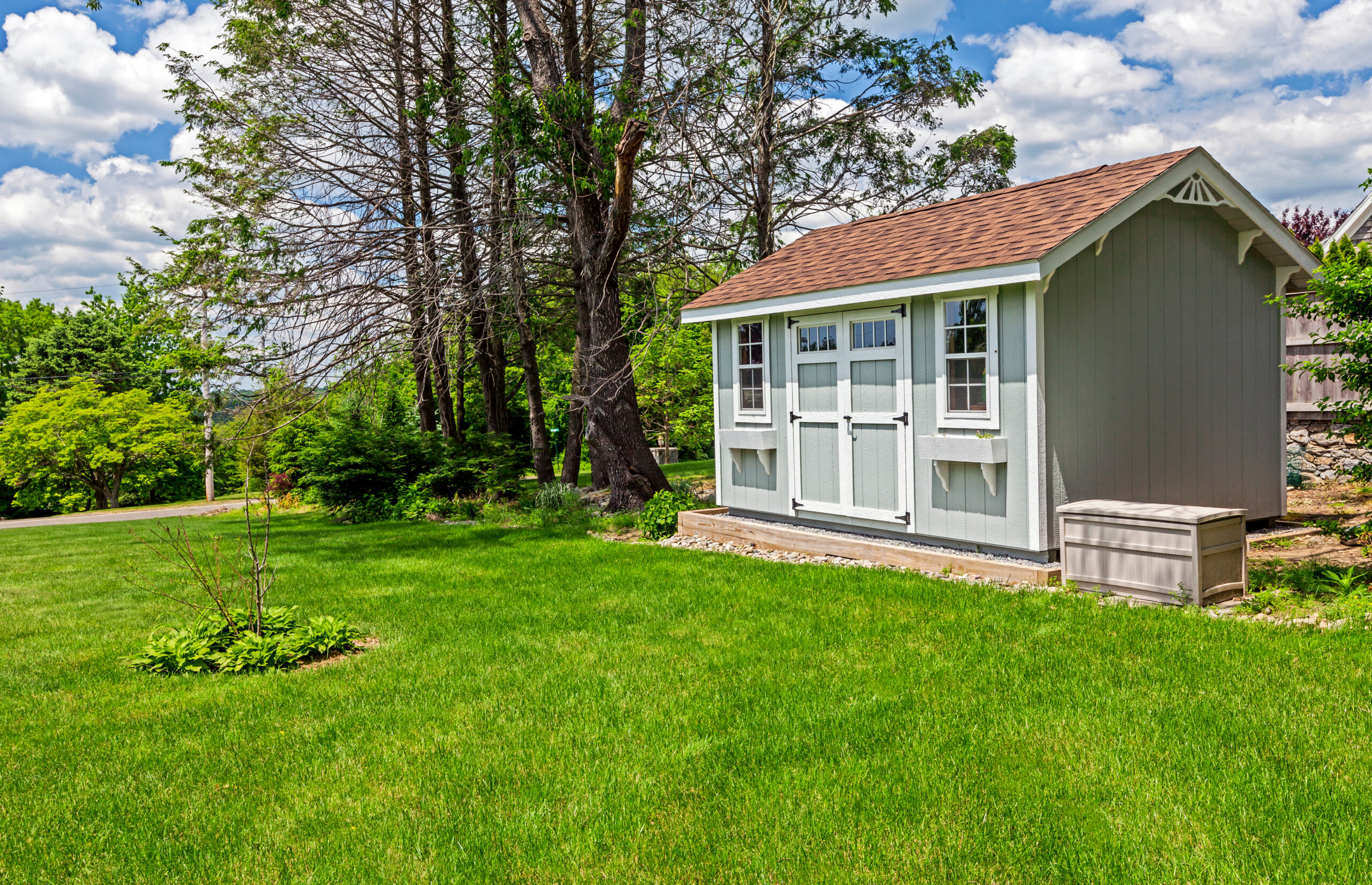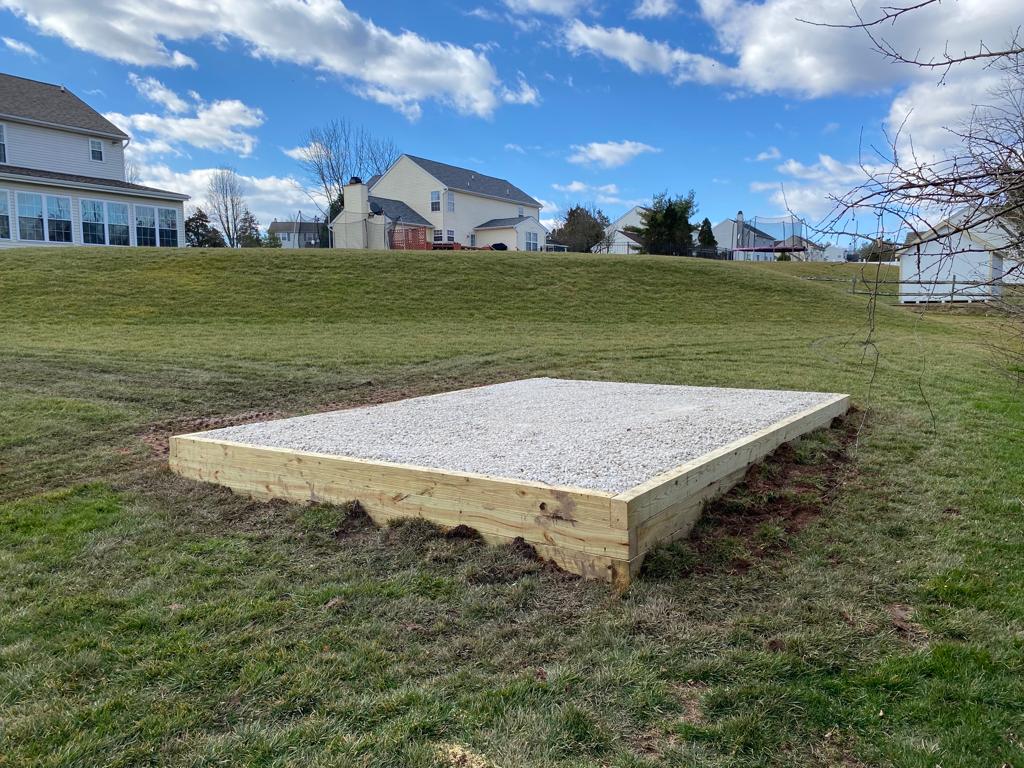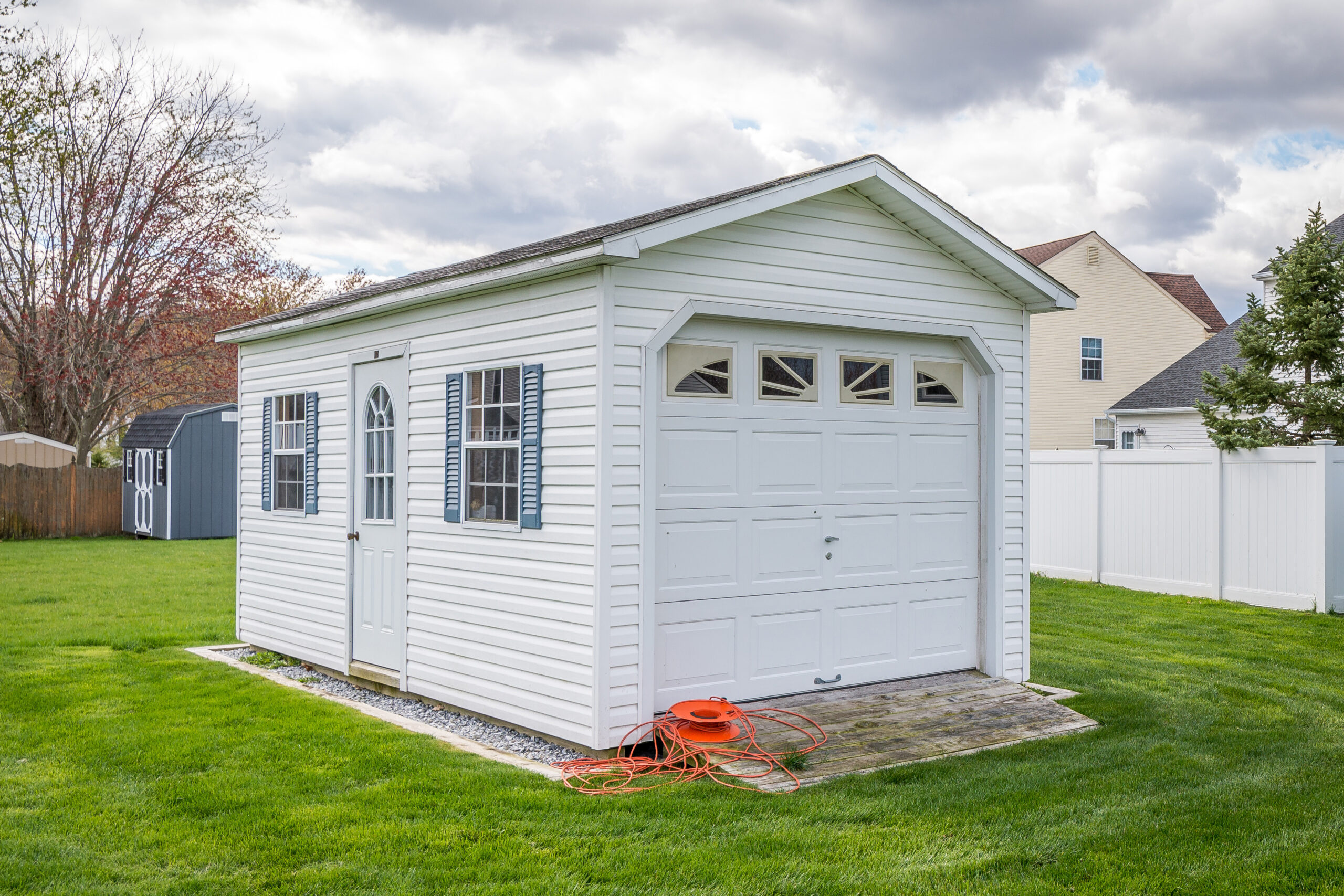Do I Need a Permit to Build a Shed?

Firm Foundations is a gravel & concrete shed foundation company that creates high quality foundations designed to last over time. We service locations in PA, MD, DE & NJ. Investing in a solid foundation is essential for ensuring that a shed remains functional, safe, and in good condition for many years. Some main reasons include structural stability, aesthetic, safety, enhanced functionality, and longevity. While there are many variables that go into building the shed of your dreams. Along with the materials and labor, the question about what are the necessary and legal obligations in order to proceed with building your shed. That brings up the question “Do I need a permit to build a shed?”
Shed regulations vary by county and state. In most cities, if your shed is over 200 sq ft, you will need a residential building permit. It is important to look up your local regulations for shed building to make sure you obtain the necessary permits. You can usually find this information on your local government’s page as they usually have a link to a permit application as well for easy access.
Larger sheds typically require permits. Many jurisdictions have size thresholds (e.g., 100 square feet) above which a permit is necessary. The larger the shed, the more likely it is to require a permit.Heavier structures might require permits due to the increased load they place on the foundation and surrounding soil. This is especially relevant if the shed is large or built with substantial materials.
Zoning Restrictions
Residential vs. Commercial: The type of property zoning affects the regulations you must follow. Residential zones often have stricter rules regarding the size, location, and use of sheds. Commercial zones may have different requirements and allowances.
Agricultural Zones: These areas might have more lenient restrictions or different requirements compared to residential or commercial zones, depending on the intended use of the shed and the scale of the structure.
Local building codes outline the standards for construction, including structural integrity, safety measures, and materials used. Compliance with these codes is crucial and often requires a permit. Regulations ensure that the shed does not negatively impact neighboring properties or violate community standards. Consulting with local authorities ensures that your shed project is legally compliant, safe, and aligned with community standards, protecting you from future problems and ensuring a smooth building process.
There are a series of regulations to follow when it comes to building sheds along with permits. Local authorities can provide information on zoning laws, building codes, and other regulations that dictate what is permissible in your area. Compliance ensures that your shed meets all legal requirements, avoiding potential fines or legal issues. Building without the necessary permits or contrary to local regulations can lead to penalties, including fines or even orders to dismantle the shed. Ensuring you have the proper approvals helps you avoid these costly and time-consuming consequences.
Local building codes are designed to ensure structures are safe and stable. By adhering to these codes, you ensure that your shed is built to withstand local environmental conditions, such as wind, snow, or seismic activity, which helps prevent accidents or damage.
Obtaining permits provides a formal record of your construction project. This documentation can be valuable for future property transactions, insurance claims, or if you need to make modifications to the shed later. Local authorities can inform you about any restrictions on size, height, placement, and use of the shed. This knowledge is essential to avoid any structural or functional issues that could arise from non-compliance. If your shed involves utilities (like electricity or plumbing) or requires special access considerations (such as driveways or pathways), local authorities can provide guidance on the necessary approvals and infrastructure requirements.
The Importance of a Strong Foundation

The importance of obtaining shed permits stems from how much goes into the building of the shed itself. Well-installed foundation protects a shed by addressing ground stability issues, managing moisture, and ensuring overall structural integrity.
Foundations help distribute the weight of the shed evenly across the ground. By providing a stable base, the foundation minimizes the effects of ground movement. For sheds, this often involves using materials like concrete piers or treated wood blocks that anchor the structure and prevent it from settling unevenly. In colder climates, frost heaves can occur when water in the ground freezes and expands, pushing the ground upwards. A well-designed foundation usually extends below the frost line (the depth to which the ground freezes), thus preventing the shed from being affected by these heaves.
At Firm Foundations, we specialize in creating top-notch shed foundations that ensure lasting stability and performance. Our expertise in foundation construction combines industry-leading techniques with meticulous attention to detail, delivering robust solutions tailored to your needs. Whether opting for durable concrete footings or versatile gravel bases, we guarantee precise leveling, superior drainage, and unmatched durability. Our skilled team meticulously prepares each foundation to prevent shifting, manage moisture effectively, and provide a solid base that supports your shed’s structure for years to come. Trust us to lay the groundwork for your shed’s success, with a foundation that stands the test of time.
Permit-Free Shed Construction (If Applicable)
When thinking about “Do I need a permit to build a shed?”, the answer varies based on the shed itself. The size of the shed plays an important role in what regulations are necessary. For example, a permit is not needed for sheds less than 1000 sq ft. In addition, ensuring that the foundation is adequate for the shed’s weight is crucial for its stability and longevity. A strong, well-prepared foundation supports not only the shed itself but also any additional weight from stored items and environmental factors. Without it, you risk uneven settling, shifting, or structural damage, which can lead to costly repairs and safety issues. Investing in a robust foundation safeguards against moisture damage and pest infestations, ultimately extending the shed’s lifespan and maintaining its overall integrity.
Tips for the Permit Process
When obtaining a permit to build a shed, start by checking your local zoning laws and building codes, as requirements can vary by location. When looking into if a permit is required to build your shed, contact your city or county’s planning department to understand the specific regulations, including size limits, setback requirements, and any necessary inspections. Prepare detailed plans and drawings of your shed, as these will often be required with your application. Submitting a complete and accurate permit application ensures a smoother approval process and helps you avoid potential legal issues or fines.
Do You Need a Permit to Build a Shed?

If you wonder, “Do I need a permit to build a shed?” The answer depends on variables of the shed such as size. It is important to do your research as securing the necessary permits before building a shed ensures compliance with local regulations and avoids potential legal issues. Meanwhile, investing in a strong foundation is crucial for the shed’s longevity, as it prevents issues like shifting or settling, which can lead to structural damage over time. Together, proper permits and a solid foundation lay the groundwork for a durable and legally sound structure.
